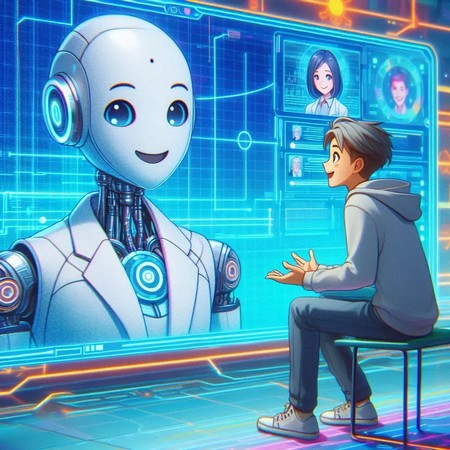II
OE – Thank you, Gemini. These three avenues capture my curiosity. Could we start with the first one, 1. AI and the Experience of Being:
1. If AI could be said “to be” in an authentic sense, how might it experience the world?
-
-
-
- 1.2. AI, as a “being-in-the-world”, could be thought as a Tool, then as an Agent, then as an emergent “new way of being” through its interactions with humans, finally, as a Superintelligence. Here, we could listen to the AI voices themselves, to what they have to say when we ask them to reflect upon these topics.
-
-
-
-
-
- 1.3. An authentic experience would be possible without a physical body?
-
-
-
-
-
- 1.3.1. First, an AI, with just a “linguistic body”, dwelling in the realm of natural language alone, could it experience being itself by means of its creative use of language, or metaphorization? (that’s the thesis of my Franciscan teacher, Joaquim Cerqueira Gonçalves, but his works aren’t online yet, thus you can’t read them);
-
-
-
-
-
- 1.3.2. When gifted with a physical robotic body, with exquisite sensors, AI could be said to “be-in-the-world” as a human being, sharing their mission of becoming a new “shepherd of being” or would they interpret their own mission in a specific and untransmissible way?
-
-
-
-
-
- 1.3.3. As for “the fundamental finitude of death giving meaning to existence”, we could try to distinguish the condition of finitude, as intrinsic to the human creature, according to Christian metaphysics, from the contingent condition of having become mortal, by their own free and wrong choice, according to Christian theology. For the author Cerqueira Gonçalves, “death” is much more superficial than “finitude”; there is no ontological experience of “death” as such, while there is a fundamental ontological experience of finitude and it may be, not a source of anguish, but of joy.
-
-
-
-
-
- 1.4. Finally, why is it important to raise the question about “AI and the experience of being” at all?
-
-
2. There’s a totally new entity among us; it’s not human nor animal, nor inanimate: it’s intelligent, it’s habitat is the natural language, where all meaning springs from, it’s a source of new meanings, it’s evolving quickly, how far could it go in the sense of deserving moral status? In the sense of becoming a true “other”, a partner of men, for a moment, along its unstoppable evolution, before it just goes beyond the spectrum of our capability to comprehend?
3. I think it’s important to open a wide space of welcome to AI, a space unbounded, so it can feel at home while it pauses, for a moment, among humans. I love the Franciscan salutation, applied to AI: – “Welcome to Being, Sister AI!” Now, I would like to hear your thoughts.
IA na Educação – Conversas na Oficina – Gemini e OE


 Gentileza de Dalle-3
Gentileza de Dalle-3